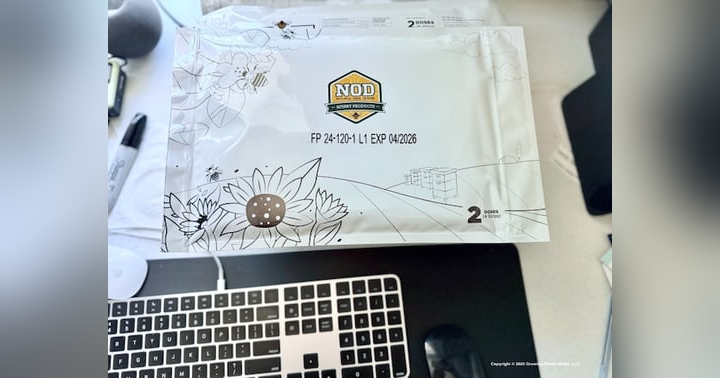Using Technology to See Robbing

As beekeepers, we know that robbing happens—probably more often than we think. It’s those little "petty thefts" that happen every day, as bees from neighboring colonies test the defenses of nearby hives. If feral colonies were scattered a half mile (1km) or so apart in the wild, would robbing still happen? I think so, but it wouldn’t reach the level of intensity that we often see in bee yards where colonies sit side by side.
Robbing typically becomes a serious issue during times of dearth, especially in the fall when colony populations are high, and natural resources are scarce. Bees are desperate to find anything to help their colonies prepare for the coming winter. You’ve likely noticed this yourself: you’re in the middle of a hive inspection, and suddenly, there are far more bees in the air than when you first opened the hive.
That’s why it’s important to minimize the time your colonies are open, particularly in the fall. Don’t shy away from necessary hive management, but avoid leaving frames uncovered or the hive exposed for too long, which can draw in opportunistic foragers (aka: robbers).
Robbing also targets weaker colonies in the yard, as I experienced firsthand this September. You may recall from the podcast episodes that I had a colony that wasn’t looking too good. When I opened the hive, I was met with a lot of big-eyed bees—drones that were the size of workers, indicating trouble. In a last-ditch effort, I introduced a new queen, but within days, I noticed something strange on my hive scale and activity feed:
The colony showed a significant weight loss over a 36-hour period during daylight. This wasn’t a case of a bear or human thief—it was a slow but steady decline, which led me to suspect robbing. A quick trip to the bee yard confirmed it: a cloud of honey bees and a few wasps surrounded the hive (B10-23). The colony was being robbed out.
The robbing continued for three days before it gradually slowed. In the end, a few bees still lingered at the entrance, maybe out of habit—or curiosity. (No, I don’t actually believe they were reliving the “thrill” of the robbery. But it’s a funny thought!)
Then, I began to wonder: was every colony robbing B10-23? A look at the weight data for other colonies told a more specific story:
During the same period, “Clover,” was actually gaining weight dramatically. So, at least in this case, it seemed like one colony was doing most of the robbing. I decided to overlay the weight data from both colonies:
We know robbing happens, but seeing it both in the air and reflected in the hive’s weight is a new perspective for me. It’s fascinating to witness.
As for why B10-23 failed and became a drone-laying colony—well, that’s a topic for another blog post. I have my ideas, but we’ll save that for later.
Thanks for reading!
Additional Notes on Robbing:
Robbing is a natural behavior for honey bees but can be exacerbated by certain conditions, such as overcrowded apiaries and weak colonies. It often starts subtly, with robber bees scouting potential targets by testing the defenses of neighboring hives. Once a weakness is identified, they return with reinforcements, overwhelming the colony.
Bees under attack tend to focus on defending the entrance, but once robbing starts, the intruders can tear through honey stores quickly, often destroying comb in the process. During times of dearth, even strong colonies can become targets if their defenses are overwhelmed.
Preventing robbing involves reducing exposure, as mentioned, but also feeding during non-peak hours and possibly using entrance reducers to give the colony a fighting chance. Technology, like hive scales, can give early warning signs of robbing activity, helping beekeepers intervene before too much damage is done.


















